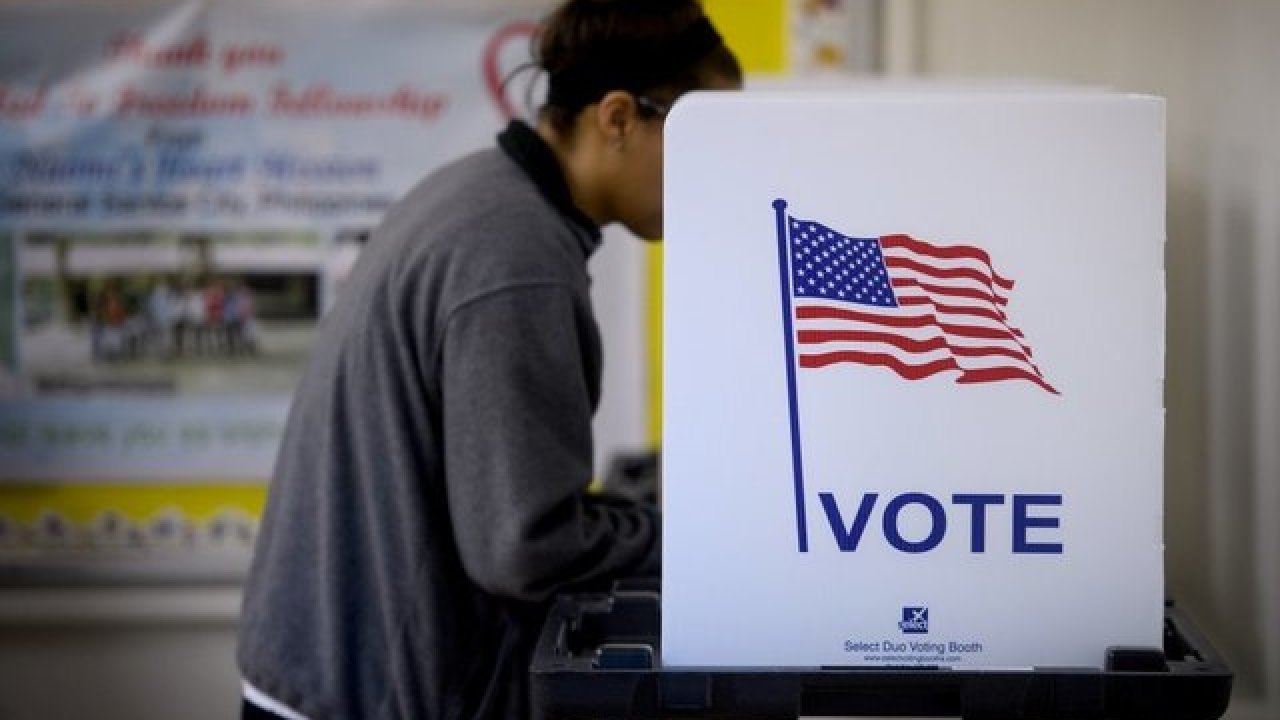We have discussed voting and some related considerations several times on these pages, but ultimately, we need to have come concrete recommendations. That is what I plan to do here. Below are some very specific things that need to be changed in our current voting laws. Note that my comments are based upon the current situation, including immigration, migration patterns, etc. It is possible (and desired) that there are major changes to those activities, as well, but for this article, I will assume that current trends hold. I will also exclude related issues, such as who should be eligible to run for public office. 
- No one who immigrates to the United States should ever be allowed to vote in national elections. I will table the discussion about whether immigrants can vote in local elections, and that might be something that each locality determines for themselves, but since national elections impact the whole country, I propose that no immigrant should ever be allowed to vote in those elections.
- Those born in the United States to non-citizens should not be allowed to vote. See above for rationale. Immigrants are simply not reliable for knowing what Americans need, and there is no evidence that first generation children of such immigrants are any better. We need to push it out to at least two generations.
- No one under the age of 25 should be allowed to vote. While the Left is pushing for lowering the voting age, the reality is that we need to be moving in the other direction. Modern youth are too immature and illogical, and should not be trusted to participate in voting.
- No one who owns less than 1 acre of property should be allowed to vote. People need to have skin in the game, and if one does not own property, they are too willing to vote for people who will raise taxes.
- No one who receives government aid (welfare, food stamps, etc.) should be allowed to vote. If I have to explain this one, then you are too short for this ride and need to go back to your coloring books.
- If a person moves from one state to another, then they should not be allowed to vote for at least ten years after establishing residence in the new location. On this one, I would be open to allowing each individual state to determine the exact limitations (for example, I could see Texas allowing a new citizen from Oklahoma to vote, while forbidding a Californian. That would make sense.). But as a general rule, a ten-year moratorium on voting would be in order, to help curtail Leftists who are fleeing their disintigrating “utopias” from screwing up the new places.
I think that is a good place to start. Do you have any other suggestions? Add them in the comments below.










I agree with list and would add a couple of additions:
1. Only permit married men with children to vote. Another skin in the game standard.
2. Disallow people with an IQ below 90 to vote. Some people are just too stupid to vote. Most of your conditions above do eliminate the need for this standard, so it may not be needed.
I could be talked into both of these.
I 100% echo everything you have listed and have been saying the same myself for the past decade. Even though that means excluding myself. If anything needs added, it would be some requirement of understand how civics actually works. If you’re “voting” but don’t understand what the position entails, whom it affects, limits of the term, etc., then you have no business participating in decisions that affect your neighbors.
The “one acre” is a non-starter, that would take a huge number of home-owners out of the pool as they have lots smaller than an acre. It would also allow folks to buy an acre of weeds in South Dakota for a few bucks and gain eligibility.
The thought is good for having skin in the game but some other criteria needs to be found.
Mostly agree, not so sure about #4. I see what you are getting at, I think, but not sure if that’s the right property qualification; too easy to game (e.g. a never-visited acre of sand outside Nowhere, Kansas). But something to ensure skin in the game from productivity that YOU have achieved, not only inherited wealth / land / title.
Add:
Voting in person on election day, only (some exceptions for military deployment, overseas missionary work, etc). Make it a national holiday. If you can’t be bothered to show up, you don’t care enough to be counted.
Paper ballots with electronic scan counting but also having easy eye-readable audit trail.
All ballots are counted in precinct and reported before then end of the night. The final result is
Make election fraud of any sort be a REALLY painful, expensive, humiliating event, possibly even a capital offense.
I do like the voting in person only (with limited exceptions – military, etc.). I also like the very strong punishment for voter fraud.
5
#4 An acre of land where your primary residency is and you live there at least 6 months out of the year.
Yes, that is a good clarification. That would avoid the scenario mentioned above, where someone buys a acre of crap land somewhere else, just to be able to vote. It must be your primary residence. Of course, nothing stops one from owning multiple tracts of land, but voting can only be done in the primary residence location.
I genuinely like #4
One of our primary problems of the current era is globalization of the population. Or in layman’s terms there are too many people in cities calling the shots. They tip the scales of power in favor of the well connected but rural folks get shafted. That’s gotta stop.
Let’s make it 2 acres.
5
On the property requirement thing, how do you play a mortgage into it? Average person buys a house and drops a thirty year mortgage onto it, they can’t vote till its paid up?
No problem with that…give further onus to keep people out of slavery/indebtedness. Just want to clarify the general thought.
And yes, that has to be a primary residence for so many months as Boethius alluded to. Else we get into the whole problem with corporate farms owning all the land, etc.
I am fine with the time requirement for residence. I would say that even if a place is mortgaged, then if the residence time requirement is met, the person could vote. The time requirement would keep people from taking bad loans to get a house, vote, then stop paying, etc.
Also, at the risk of being too short for the ride, I’ll put my neck out on #5. Not to get into an endless debate on semantics, but what do you do with those who get aid…like farmers for crop insurance? That is a Federal program that pays out. If your crop fails, are you kicked from voting for a year? (Ignore the whole thing on if the Fed’s should even be involved…yeah yeah). The same sort of thing potentially holds for college debt.
A distinction may be those benefits which are given out on a recurring, monthly basis.
I am going to be hard core on this one. If you get any kind of government assistance – no vote.
Fair enough. That can ride for a bit. Government assistence = no vote. Does it hold for a year? Two years? One shot, one kill?
I would say that as long as you get aid, no voting. If you get off the aid, then yeah, we might need some time element, to verify that you do not go back on. The purpose is to avoid having people voting to give themselves benefits at the taxpayers’ expense.
Agreed.